I often get asked if I have specific advice for people on how to be more successful hunting wild mushrooms.
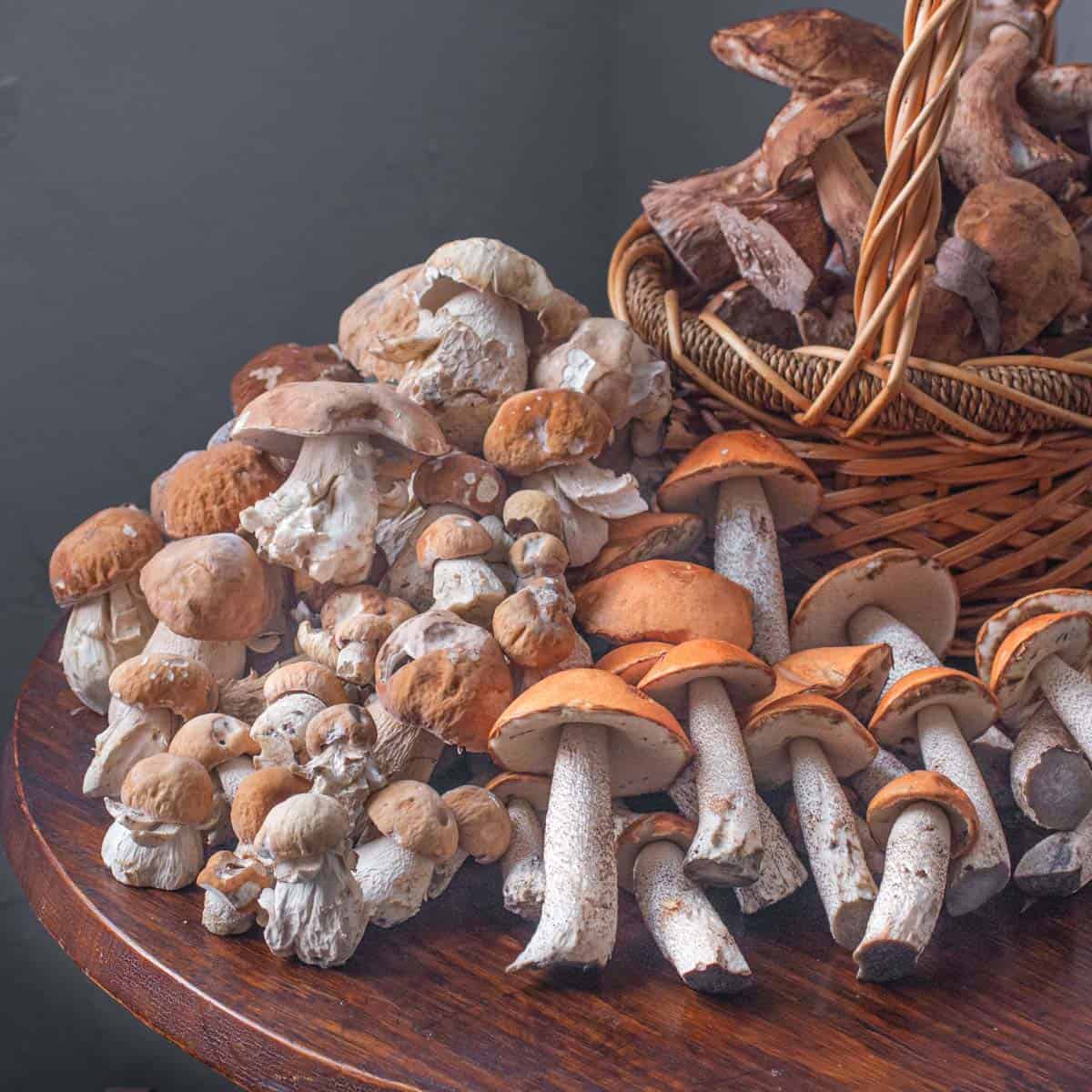
If you're like some of my friends, and are obsessed with finding mushrooms, you'll know there's a ton of literature and advice to consume. In this post I'm going to share the best tips I have for improving your mushroom hunting hobby so you have less of a chance of going home empty handed.
In no particular order, here we go.
Keep a Mushroom Hunting Journal
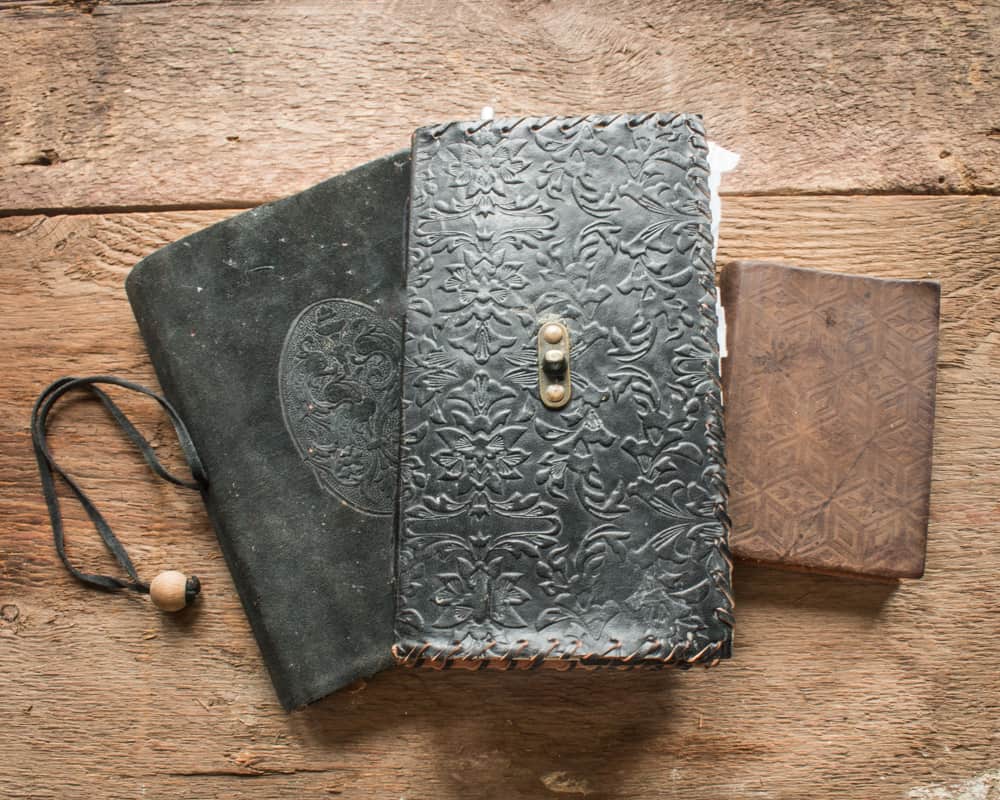
I keep a small journal in my car, and every time I go out, for anything, when I get back in the car, the first thing I do is write down some thoughts about the hunt. An entry might look like this:
August 14 2016
Location(s): John Goodrich Park, main trail lots of white oak
Picking: Tons of chanterelles here today, most were really young, nice buttons stills. Picked about 5 lbs total. Also grabbed a few milkweed buds and flowers, and some sow thistle growing by the trail.
Using the journal lets me have exact dates for what I'm picking when, and makes hunting the next year easier (most of the time).
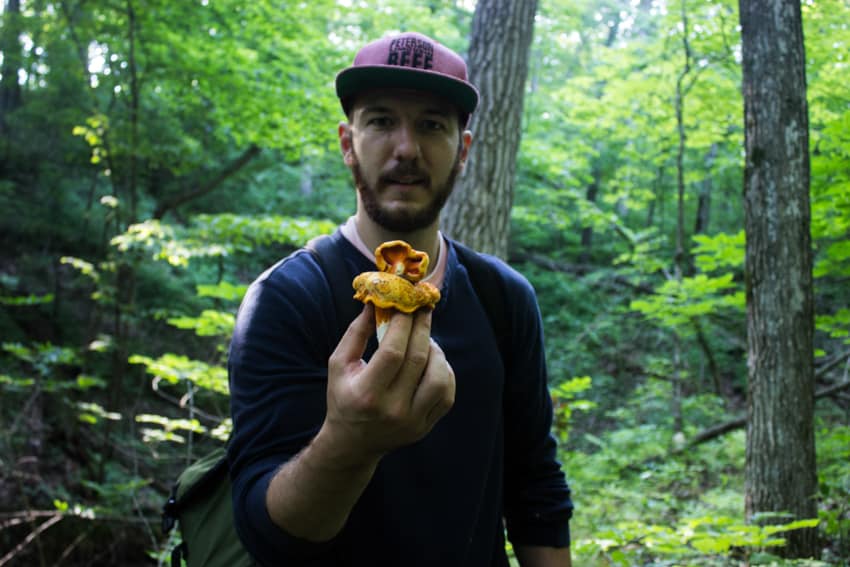
Join Mushroom Hunting Groups
You basically have two choices here, and I reccomend joining both.
Facebook mushroom hunting groups
Facebook groups be the easiest way to see when, where and what type of wild mushrooms people are picking in your area, and, they're free. When I first started hunting, I joined online groups like morels.com and a few others.
Reddit is also a place you can run into mushroom based threads and online information. The memberships of many of these, specifically independent websites like morels.com, have mostly shifted to Facebook for convenience, and to be part of a larger audience.
The beauty of Facebook mushroom hunting groups is that there are tons of them, for example, in my area, I'm part of 5, just in the Midwest. One of the most useful world-wide pages is Wild Mushroom Identification.
There's also a great one dedicated specifically to cooking wild mushrooms led by my friend Mary. The only problem I can find with some of these groups is that you may get too much information, as there can be many posts on each group per day during the hunting season. By comparison, we have 1 local mycological society/club, and it only meets on specified dates.
Local mycological society or mushroom hunting clubs
Your local mycological society has probably been around for a while, and you've just never known it. In Minnesota, there is the MMS. For a modest annual fee, you'll be able to go on forays with experienced hunters and mycologists in your area. Nothing, and I mean nothing, is better for learning the mushrooms of your region than hands-on experience.
Explore Habitats Near and Far
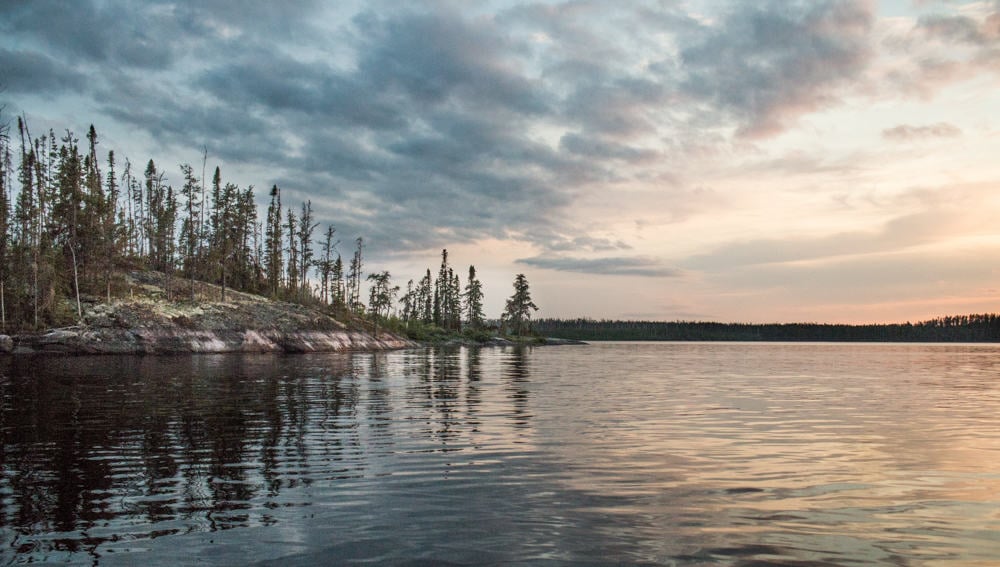
Some people are lucky, and live near areas where they have easy access to large varieties of wild mushrooms by walking a few blocks and going on a trail (Minnesota).
Others, like some of my friends who forage in Arizona, may have to drive to specific elevations or places just to have a chance at hunting. Either way, going to different locations and keeping your eyes open will tell you a lot, and the more you look for mushrooms, the more you'll see.
Know Your Mushroom References
Online wild mushroom references
If you're lucky, you'll be able to get cell service sometimes when you hunt, and that can make for easy on-the-spot ID help, especially if you post to a trusted Facebook mushroom ID group. The most authoritative research on-the-go, is probably through mushroomexpert.com, from Mycologist Micheal Kuo.
Mushroom field guides
I have lots of field guides, and I like to buy them not only for where I live, but where I travel regularly, just in case I want to hike on vacation. The best field guide in my opinion, will always be David Arora's Mushrooms Demystified, but as time goes on, and technology changes how mushrooms are categorized and named.
Newer books and genus-specific books can help you keep up to date, as well as flesh out differences in your local mushroom terroir. Quick side note: take a look at my favorite mushroom hunting knives or bookmark it to look at later if you haven't.
Facebook Mushroom ID Groups
There are hundreds of wild mushroom hunting ID groups out there to join, find some in your area. Also join others on specific topics.
Groups like False Morels Demystified, Boletes of North America, groups focused on Lactarius, etc are all on Facebook and give you access to information from around the world in milliseconds. Benevolent experts in the groups can also help you identify specific mushrooms if you follow the rules and ask nicely.
Follow the Rain and Water
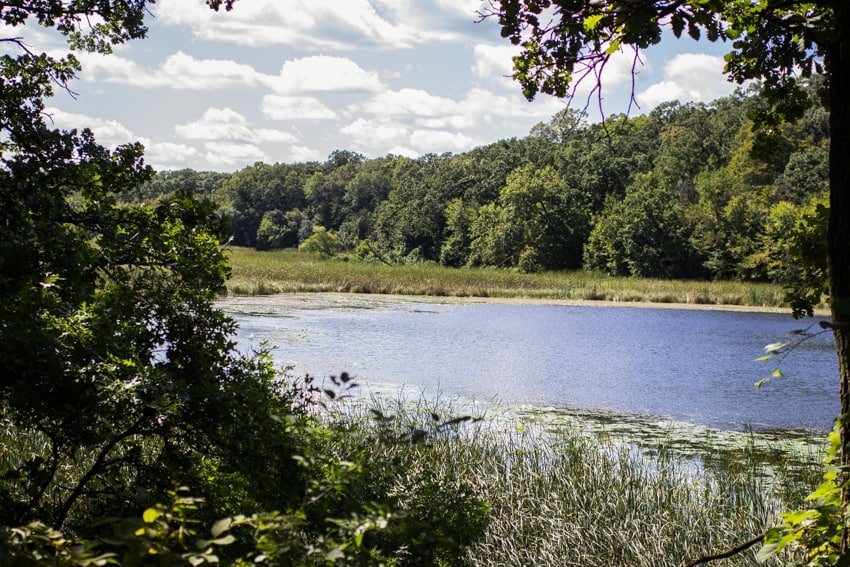
Rain
This is a trick that Eastern European mushroom hunters know very well. Mushrooms need moisture, and that means rain. So, after it rains, I like to wait a few days, and then go out and see what I can find.
Another, more precise hunting trick is to look at websites that log precipitation for areas around you, as not every area gets the same (or any) rainfall from a regional storm. If your area has been dry, maybe you should try going north, south, etc. Knowing where it's been wet, will lead you to mushrooms, and often new territory.
Water
Water being in an area can be a good sign of mushrooms too, as in the picture above. When you're looking at areas to go to, try forests near lakes, etc. When hunting, looking for areas that will hold water, down a hill, close to the edge of the water for example, can be great too.
Practice Your Mushroom ID Skills
When you're out hunting and you see something you don't know, make a note in your journal about what they were growing with: what kind of trees? Conifers? Deciduous?, etc.
Bring back a couple specimens of various ages (if available) to research, but keep them separate, and do not mix them in with any edible mushrooms you might have already picked. Going through the motions of trying to identify the mushrooms in question, even if you don't succeed, is good practice.
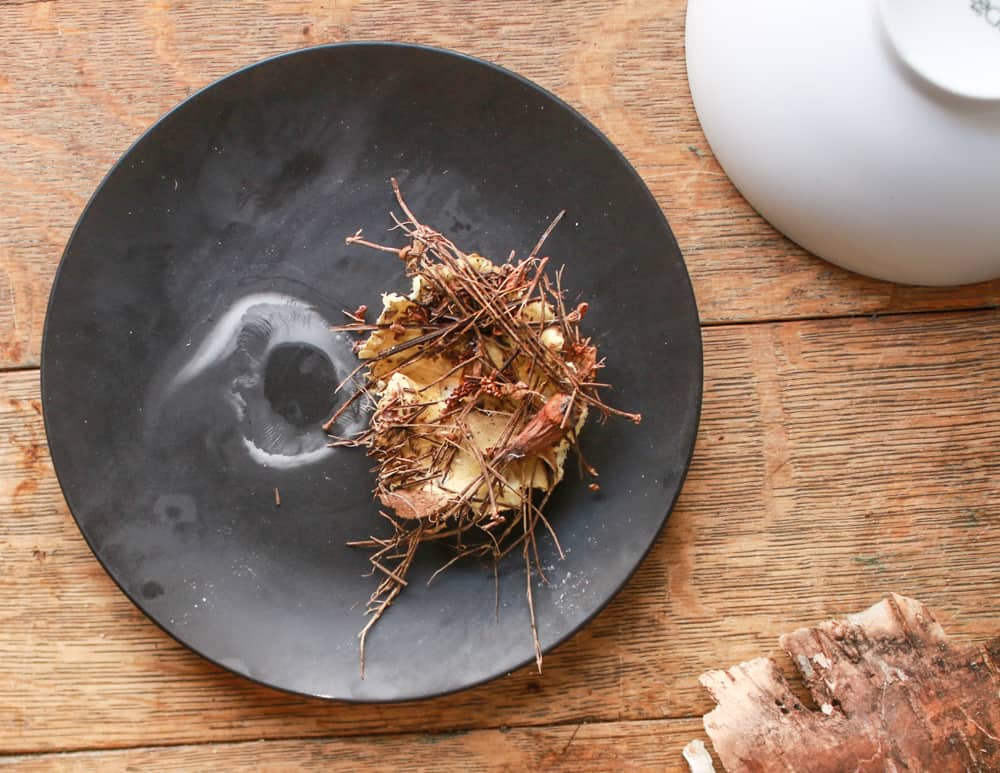

Maggie Murphy
It is a well established fact where I come from that if one endeavors to pick up some trash along way to checking one's spots, one will be rewarded with an abundance of mushrooms one did not expect to find. Im not kidding. Its a "thing." It is interesting that the amount of trash collected is not necessarily proportionate to the amount of mushrooms you might expect to harvest. Pick up just one old Budweiser can because you are in a hurry, and you will still reap the rewards. However, should that Budweiser can be loaded with ants that escape on the way back to the truck and bite nearly every square inch of your arm before you realize it, and this seems to count for something more: like a triple word score. You can count on finding Chanterelles and other delectables on your foray the next day, the size of your hand. Go ahead and check this out. I posted this observation on a mushroom group page and got over 100 hits from people who have noticed this phenomenon.
Michael Hilliard
I’ll second Maggie’s comment with an example. This year everyone has been complaining of how late and few the chanterelles are around Washington, but we still go out religiously. Two forays ago my boys and I came back with maybe 5 lbs each, but found a bunch of trash left at our favorite spot in the mountains by some yahoos who thought Prestone anti-freeze containers would compost; so, of course we brought them back with us.
Our return to the same spot two weeks later yielded about 15 lbs of chanties and another 30 lbs of lobster mushrooms. It seems that Jörð (Norse god of the forests) was observing and rewarded us. Keep your eyes peeled for trash!
Alan Bergo
Jörð approves this message.
Maggie Murphy
It i a well established fact where I come from that if one endeavors to pick up some trash along way to checking one's spots, one will be rewarded with an abundance of mushrooms one did not expect to find. Im not kidding. Its a "thing." It is interesting that the amount of trash collected is not necessarily proportionate to the amount of mushrooms you might expect to harvest. Pick up just one old Budweiser can because you are in a hurry, and you will still reap the rewards. However, should that Budweiser can be loaded with ants that escape on the way back to the truck and bite nearly every square inch of your arm before you realize it, and this seems to count for something more: like a triple word score. You can count on finding Chanterelles and other delectables on your foray the next day, the size of your hand. Go ahead and check this out. I posted this observation on a mushroom group page and got over 100 hits from people who have noticed this phenomenon.